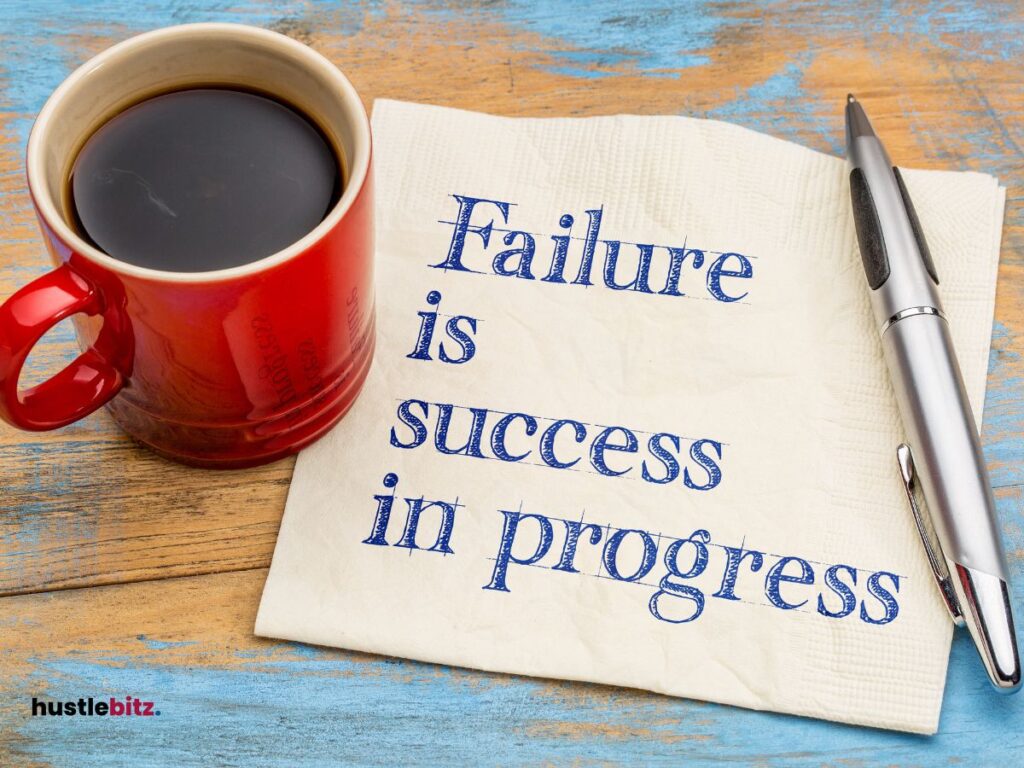Cultivating a growth mindset is vital for fostering long-lasting motivation. This mindset promotes the belief that abilities can develop through effort, encouraging individuals to perceive challenges as learning opportunities. By embracing failure as a valuable lesson, one enhances resilience and persistence in overcoming obstacles. Techniques such as setting incremental goals, seeking constructive feedback, and practicing self-reflection support this growth. These strategies not only increase motivation but also facilitate personal development and adaptability. Understanding how to effectively implement these principles can further improve your journey toward sustained motivation and success. There is much more to explore on this topic.
Key Takeaways
- Embrace challenges as opportunities for growth, reinforcing skills and resilience through overcoming obstacles.
- Reframe failure as a valuable learning experience that enhances self-efficacy and motivation.
- Actively seek constructive feedback to refine abilities and foster personal development.
- Set incremental goals to track progress and celebrate small achievements, boosting motivation.
- Practice self-reflection to evaluate experiences, identify strengths, and reinforce a commitment to continuous learning.

Understanding Growth Mindset

A growth mindset, a concept popularized by psychologist Carol Dweck, refers to the belief that abilities and intelligence can be developed through dedication, effort, and learning, contrasting sharply with a fixed mindset that views these qualities as static.
Embracing a growth mindset fosters personal growth by encouraging individuals to face challenges as opportunities to learn rather than obstacles to avoid. This perspective not only enhances motivation but also cultivates resilience, enabling individuals to navigate setbacks more effectively.
Cultivating a growth mindset involves recognizing that failure is not a reflection of one’s inherent abilities but rather an essential part of the learning process. When individuals encounter difficulties, those with a growth mindset see these situations as valuable learning opportunities, thereby transforming potential discouragement into motivation for improvement. This shift in perception empowers individuals to pursue their goals with tenacity.
Furthermore, the belief that intelligence can be developed encourages a proactive approach to skill enhancement. By actively seeking out challenges and embracing the discomfort that often accompanies growth, individuals position themselves for continuous development.
This attitude creates a positive feedback loop; as one faces setbacks and learns from them, their resilience strengthens, further fueling their motivation to tackle new challenges.
The Science Behind Motivation
Understanding the science behind motivation involves exploring the complex interplay of psychological factors, biological processes, and environmental influences that drive individuals to pursue their goals. Central to this discussion is the concept of a growth mindset, popularized by psychologist Carol Dweck. A growth mindset fosters motivation by emphasizing the importance of effort and learning in achieving personal and professional growth. Individuals who embrace a growth mindset recognize that hard work and perseverance create opportunities for growth, especially in the face of challenges.
Biologically, motivation is linked to neurotransmitters such as dopamine, which play a crucial role in reward processing. This chemical response can be influenced by one’s mindset; those with a growth mindset are more likely to seek out challenges and derive satisfaction from learning experiences. This intrinsic motivation is essential for sustained learning and development.
The following table summarizes key aspects of motivation:
| Aspect | Description | Growth Mindset Impact |
| Psychological Factors | Beliefs about abilities and intelligence | Enhances resilience and persistence |
| Biological Processes | Neurotransmitter activity affecting rewards | Increases drive to pursue goals |
| Environmental Influences | Support systems and feedback | Encourages exploration and risk-taking |
Benefits of a Growth Mindset

Embracing a growth mindset offers numerous benefits that enhance personal development and foster resilience in the face of challenges. At its core, a growth mindset encourages individuals to view abilities and intelligence as qualities that can be developed through effort and learning. This perspective transforms setbacks into valuable opportunities to learn and grow, allowing individuals to navigate difficulties with greater ease.
One of the key benefits of a growth mindset is the inherent boost to motivation. When individuals believe that their skills and knowledge can improve through dedication, they are more likely to engage in persistent efforts. This motivation is further amplified when they face setbacks, as they cultivate an attitude that views challenges as stepping stones rather than insurmountable obstacles.
Moreover, adopting a growth mindset opens the door to embracing constructive criticism. Rather than taking feedback personally, individuals learn to appreciate it as a tool for development. This willingness to accept input enables them to refine their skills and knowledge, which in turn accelerates their growth journey.
Learning From Failure

Learning from failure is a fundamental aspect of cultivating a growth mindset, as it transforms setbacks into powerful lessons that foster resilience and innovation. Individuals with a growth mindset understand that intelligence is malleable and that failure does not define their abilities. Instead of succumbing to the fear of failure, they adopt a constructive approach that encourages them to take risks and embrace challenges.
Viewing challenges as opportunities for learning enables individuals to persist through obstacles. Each failure provides valuable insights that contribute to personal and professional development. By analyzing what went wrong and identifying areas for improvement, one can extract meaningful lessons that inform future endeavors. This process not only builds competence but also reinforces the belief that effort leads to mastery.
A growth mindset involves recognizing that setbacks are not endpoints but rather stepping stones on the path to success. This perspective encourages individuals to develop resilience and to approach problems with curiosity and creativity. As they learn from failure, they cultivate a stronger sense of self-efficacy, which further motivates them to tackle new challenges.
Ultimately, learning from failure is an essential component of a growth mindset. By embracing setbacks and viewing them as opportunities for growth, individuals can foster a lifelong commitment to learning and improvement. This shift in perspective not only enhances motivation but also empowers individuals to navigate the complexities of their pursuits with confidence and determination.
Techniques to Cultivate Growth Mindset
Building on the insights gained from failure, several techniques can be employed to effectively cultivate a growth mindset. This mindset is a belief system that encourages individuals to view challenges as opportunities to learn and grow. By adopting specific strategies, one can enhance motivation and resilience, making it easier to persist through obstacles and embrace new challenges.
- Embrace Challenges: Actively seek out tasks that stretch your abilities. This willingness to take on new challenges fosters a sense of achievement and reinforces the belief that skills can be developed over time.
- Reframe Failure: Instead of viewing failure as a setback, consider it a learning opportunity. Recognizing that each misstep provides valuable insights allows individuals to maintain their desire to learn, which is crucial for achieving success.
- Practice Self-Compassion: Be kind to yourself during difficult times. Acknowledging that everyone faces challenges helps to mitigate negative self-talk and encourages a more constructive attitude towards personal growth.
The Role of Self-Reflection

Self-reflection serves as a critical tool in developing a growth mindset, enabling individuals to evaluate their experiences and understand the underlying factors that contribute to their successes and failures. By engaging in self-reflection, individuals can identify their strengths and weaknesses, which is essential for fostering motivation and resilience in the face of challenges. This process allows one to adopt a constructive approach to setbacks, viewing them as opportunities for learning rather than as indicators of fixed intelligence.
Through self-reflection, individuals cultivate a deeper understanding of their personal growth journey. They can analyze their responses to various experiences and make informed adjustments to their strategies moving forward. This iterative process encourages an ongoing commitment to self-improvement and enhances overall motivation.
The following table illustrates the benefits of self-reflection in relation to cultivating a growth mindset:
| Aspect | Benefits | Impact on Motivation |
| Self-Awareness | Enhances understanding of oneself | Fosters resilience |
| Learning from Setbacks | Encourages constructive feedback | Promotes perseverance |
| Adapting Strategies | Facilitates better problem-solving | Increases confidence |
| Embracing Challenges | Builds emotional intelligence | Stimulates personal growth |
| Goal Setting | Clarifies objectives and milestones | Increases focus and drive |
Final Thoughts
Cultivating a growth mindset is a powerful approach to fostering long-lasting motivation and personal development. By embracing challenges, viewing failures as learning opportunities, and engaging in self-reflection, individuals can build resilience and continually enhance their abilities. This mindset not only supports sustained motivation but also encourages adaptability and continuous growth, leading to greater success in both personal and professional endeavors. As you apply these principles, remember that the journey of growth is ongoing, and each step forward contributes to a more fulfilling and accomplished life.




